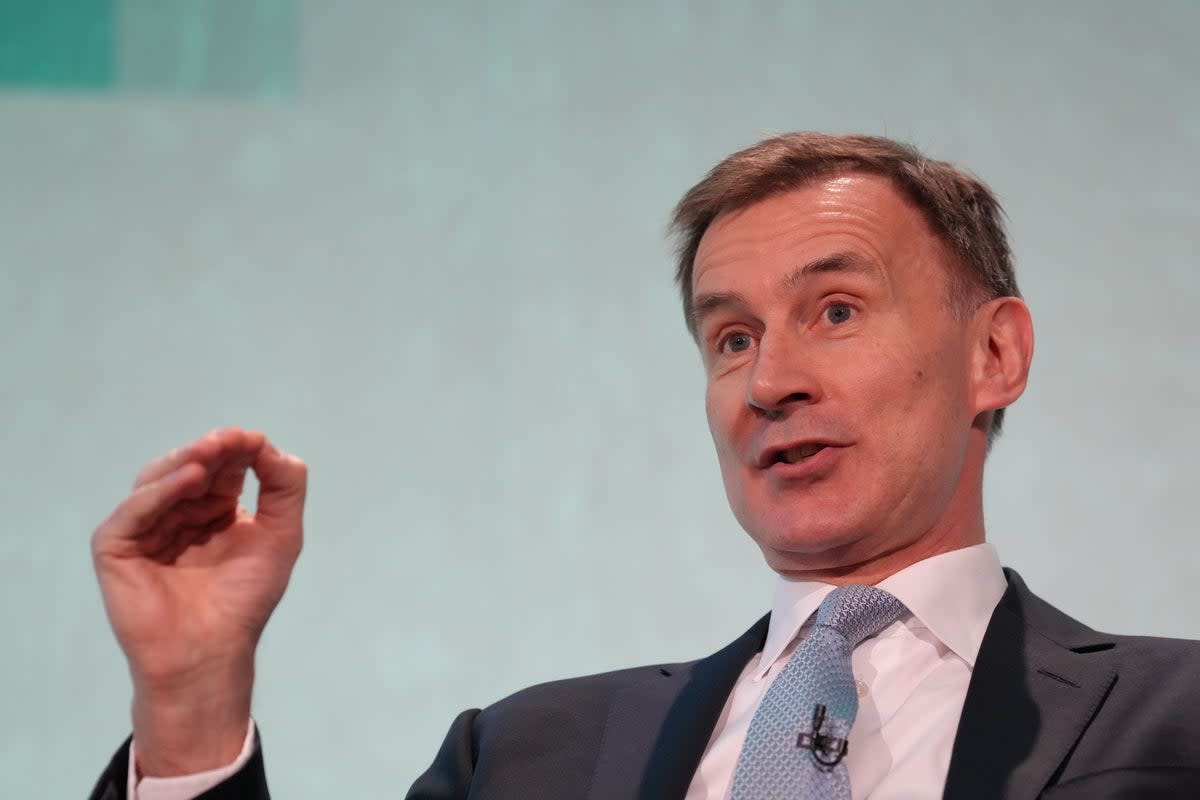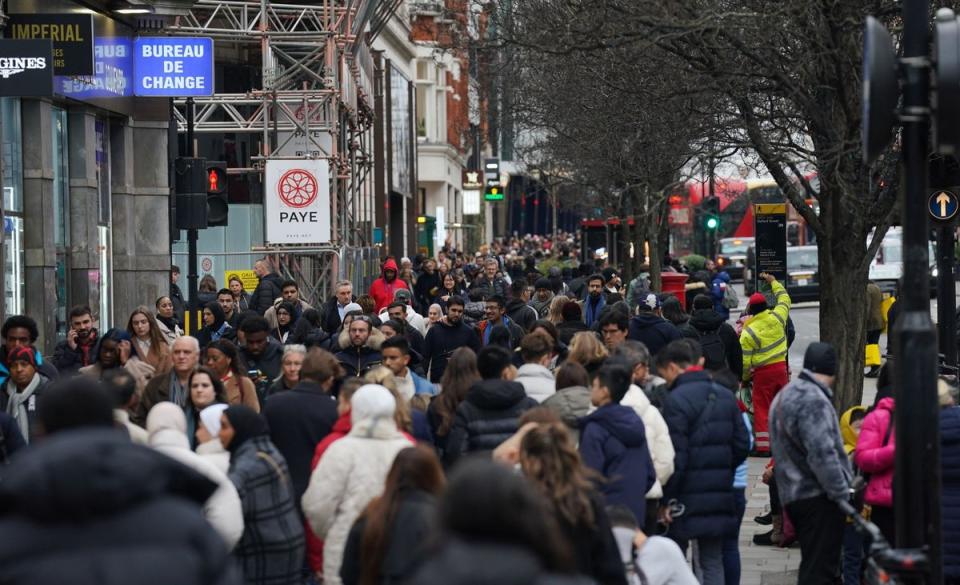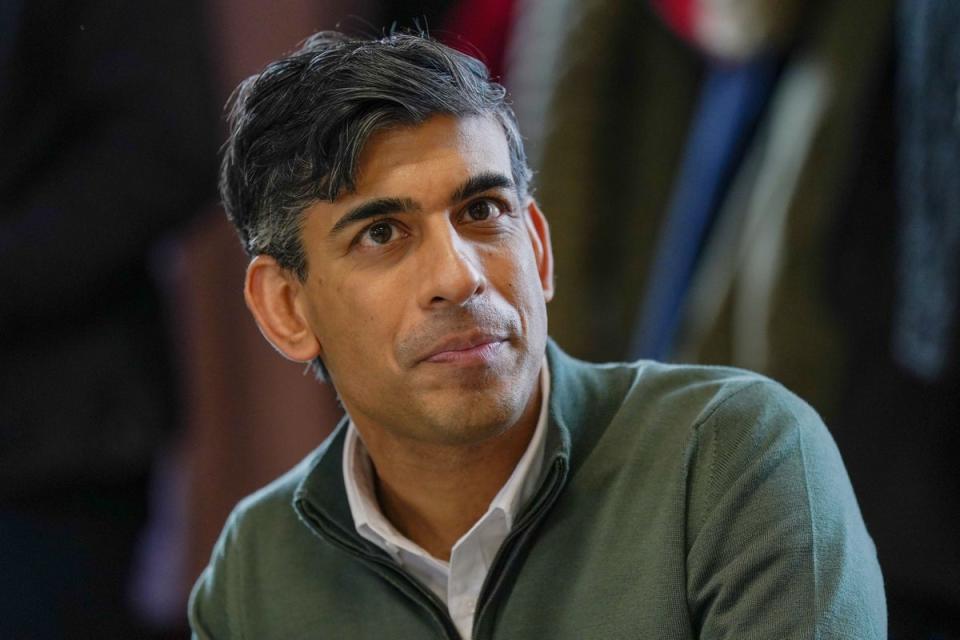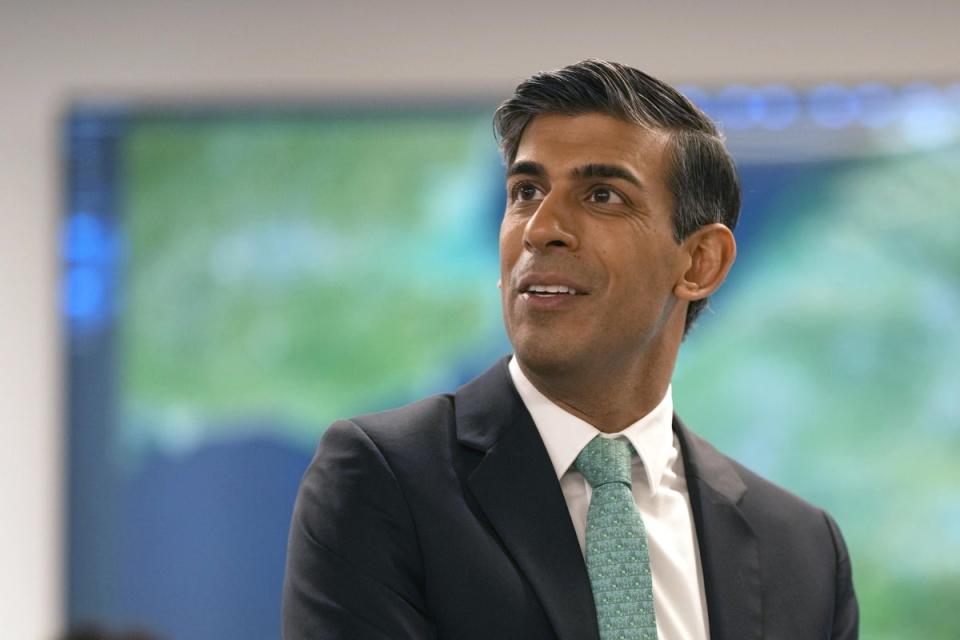What is the tourism tax? Jeremy Hunt could scrap controversial measure affecting London

Jeremy Hunt faced renewed calls on Monday to scrap the controversial “tourist tax” within weeks and give London a significant economic boost.
The chancellor has asked the Office for Budget Responsibility (OBR) to look at the benefits and disadvantages of the levy and report back before the budget on March 6.
It gives hope that London could again appeal to wealthy tourists although it remains to be seen what will come next.
The Treasury has argued that axing the levy now could cost up to £2bn a year in lost taxes.
But campaigners have insisted that the analysis did not take fully into account the broader boost to the wider economy, beyond the revenue for shops selling to high-spending tourists.
Mr Hunt has previously said it is unlikely he will have “the kind of room that I had for those very big tax cuts” in the autumn statement.

What is tourism tax and how is it affecting London?
As chancellor, Rishi Sunak abolished tax-free shopping for tourists in 2020.
The perk allowed tourists from outside the EU to claim back their VAT on goods bought in the UK, making them 20 per cent cheaper.
The tourist tax is seen as putting London at a disadvantage to other European cities such as Paris and Milan in attracting wealthy visitors, with campaigners against it claiming it is costing the UK billions. The government has been under pressure to reinstate duty free shopping, which has had an impact on London Fashion Week, making purchases 20 per cent more expensive for international shoppers.
The loss of duty-free shopping, according to independent designer Edeline Lee, who established her namesake brand in 2013 and creates all of her clothing in the UK, makes it more challenging for small British businesses to compete with their European competitors.

Laboni Saha, the founder of womenswear brand L Saha, is finding it “increasingly challenging to remain profitable from sales in the UK” as the cost of running a business increases with “Brexit-related costs and inflation”.
A recent study by the Centre for Economics and Business Research (CEBR) has revealed that the “tourist tax” is costing the UK £10.7 billion in lost GDP and putting off two million tourists from visiting each year.
The research also showed that extra sales generated by reinstating VAT-free shopping for tourists would outweigh these losses.
Around 350 businesses previously sent an open letter to the Mr Hunt, asking for the situation to be addressed, highlighting the fact that tourists are choosing to travel to and spend their money in cities that don’t have the indirect tax.
Mr Sunak said last year had said he would listen to calls to scrap the “tourism tax” that critics say is damaging London’s economy.
The PM’s official spokesman said at the time: “We are always happy to listen to the sector about their concerns and obviously we will respond accordingly.”
A debate on tax-free shopping for international visitors was held in Westminster Hall on September 7 but no decision has been made yet.
Mr Hunt has asked the independent watchdog OBR to review it, giving the clearest message yet that it could be set for modification.
How did the VAT refund for overseas visitors work?
Until January 2021, visitors to the UK from outside the EU were able to get a VAT refund on their shopping. VAT, which stands for value-added tax, is a 20 per cent sales tax charged on items in the UK.
Non-EU visitors used to be able to present a VAT receipt at the airport to claim their refund. This scheme has since ended, though customers are still able to buy items VAT-free in-store if they send them directly to their homes overseas.
The VAT paid by visitors to the UK is different from how tourist tax works in other cities. For example, Manchester introduced a tourist tax in April, which charges visitors to the city £1 per night for hotels and similar accommodation. The hope is that this tourist tax could raise millions of pounds for the council, and that the money could be used to boost the tourism economy.

Why did the VAT refund scheme end?
The VAT refund scheme ended in 2021 after the UK left the EU, as part of a post-Brexit consultation about taxing items transported across borders for personal use.
Kwasi Kwarteng reintroduced the tax-free shopping scheme as part of his mini-budget, but Jeremy Hunt reversed the decision when he became chancellor, claiming it was unaffordable.
At the time, retail bosses described Hunt’s decision as a “hammer blow to UK tourism and the British high street”.
Mr Hunt argued that by not introducing a new VAT-free shopping scheme, the UK could generate more than £1 billion in 2024, and more in subsequent years, as reported by Forbes.
However, a report by the luxury trade association Walpole found that tax-free shopping generated more than £3 billion a year for the UK as well as wider economic benefits.
Paul Scully, MP for Sutton and Cheam, also welcomed the review into the levy.
“I hope that this will lead to it being scrapped, if possible at the Budget,” he said, stressing that the move would benefit “ordinary Londoners” including those who work in the hospitality sector and taxi drivers.


